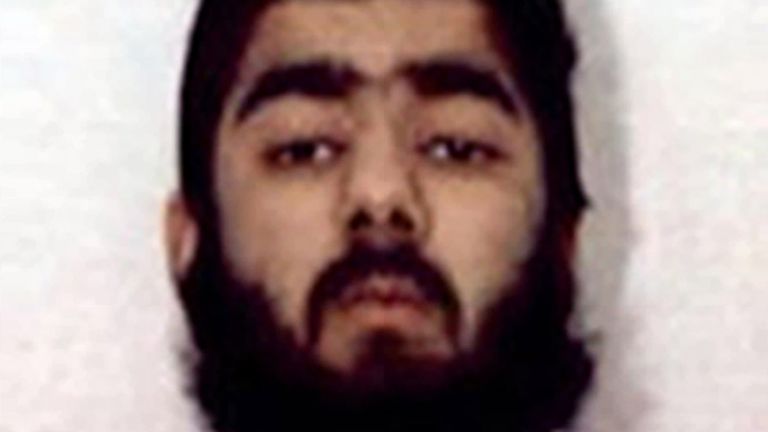Almost 100 convicted terrorists are being assessed for release from prison by the parole board, with several cases being decided in the next few months..
Emergency laws passed in the wake of the 2019's London Bridge attacks in February 2020, that blocked the automatic early release of jailed terrorists, mean that 92 active and ongoing terror cases could come before the parole board in the near future, depending on how long it takes to gather evidence.
Due to the "critical public protection nature" of the cases, the parole board is increasing the number of specialists who can handle them.
Terror cases often take longer to be considered for parole, due to being more complex, and the need to "go through painstaking and thorough processes" to ensure the all the information is available, the parole board said.
Offenders will no longer be automatically freed after serving half their time and must now serve at least two-thirds of their sentence before being eligible for release. Cases must also be reviewed by the Parole Board before a decision is made over release.
Among the cases up for review is that of Nazam Hussain, who plotted attacks alongside the London Bridge attacker Usman Khan, and Jack Coulson, who produced a pipe bomb in his bedroom which was filled with Nazi memorabilia - both could face the board in March.
Rangzieb Ahmed, a terror boss who became the first person in the UK convicted of directing terrorism after he led a three-man cell that was planning mass murder, could also have his case heard in March.
The same month could also see Jawad Akbar, who was part of a group plotting to bomb the Bluewater shopping centre in Kent and the Ministry Of Sound in London in 2004, hear if he will be released.
Abdalraouf Abdallah's case may also be heard soon - he was visited in prison by Manchester Arena bomber Salman Abedi but has denied involvement in the attack. He was recalled to prison earlier this year for breaching his bail conditions.
Since the law came into force, 117 cases have been referred to the parole board. Eleven have so far been freed while 14 have been kept behind bars.
Subscribe to the Daily podcast on Apple Podcasts, Google Podcasts, Spotify, Spreaker
A key part of reviews comes from intelligence supplied by the security services, and the panels, which are made up of people such as former judges, chief constables and psychologists, require "top-level security clearance" in order for them to hear sensitive evidence.
But, because of the "critical public protection nature" of the cases, the Board is increasing the number of specialists who can handle them and hopes to have around 70 panel members by early next year.
A parole board spokesman said: "Public protection is always our top priority. Any terrorist convicted offender released into the community will be subject to some of the strictest licence conditions available, including restrictions of where they can go, who they can associate with, restrictions on internet use, electronic devices, travel and work.
"They will also be subject to further close monitoring as part of Multi Agency Public Protection Arrangements (Mappa)."
https://news.google.com/__i/rss/rd/articles/CBMiigFodHRwczovL25ld3Muc2t5LmNvbS9zdG9yeS9uZWFybHktMTAwLXRlcnJvcmlzdHMtYmVpbmctY29uc2lkZXJlZC1mb3ItcmVsZWFzZS1ieS1wYXJvbGUtYm9hcmQtYWZ0ZXItbGF3LWNoYW5nZS1pbi13YWtlLW9mLWF0dGFja3MtMTI1MDYwODLSAY4BaHR0cHM6Ly9uZXdzLnNreS5jb20vc3RvcnkvYW1wL25lYXJseS0xMDAtdGVycm9yaXN0cy1iZWluZy1jb25zaWRlcmVkLWZvci1yZWxlYXNlLWJ5LXBhcm9sZS1ib2FyZC1hZnRlci1sYXctY2hhbmdlLWluLXdha2Utb2YtYXR0YWNrcy0xMjUwNjA4Mg?oc=5
2021-12-30 04:19:38Z
1235680789

Tidak ada komentar:
Posting Komentar